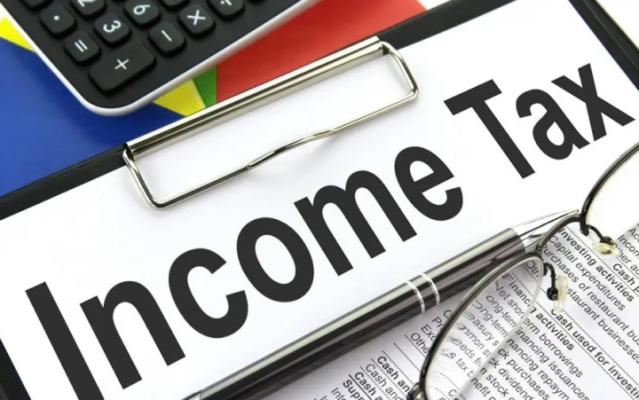By Bizwatch Nigeria Limited,Boluwatife Oshadiya
Copyright bizwatchnigeria

When President Bola Ahmed Tinubu signed four sweeping tax reform laws into effect on June 26, 2025, it wasn’t just another policy announcement. It marked the most ambitious shake-up of Nigeria’s tax and revenue framework in decades. For workers, students, entrepreneurs, and even public servants, these changes will ripple through daily life in one way or another.
The package—made up of the Nigeria Tax Act, Nigeria Revenue Service (Establishment) Act, Nigeria Tax Administration Act, and the Joint Revenue Board (Establishment) Act—is designed to simplify what many Nigerians have long described as a confusing, fragmented tax system. Think of it as tearing down an old, creaky house and rebuilding it with stronger bricks, better wiring, and smarter layouts. But what exactly is in these laws, and why should you care? Let’s break it down into seven big takeaways that matter beyond the legal jargon.
1. A Stronger Joint Revenue Board to End the Tug-of-War
For years, Nigerians have watched federal, state, and local governments squabble over who gets what tax. Sometimes, businesses paid twice for the same obligation because agencies overlapped.
The Joint Revenue Board (JRB) is now positioned as the referee. It’s tasked with making sure tax policies align across different levels of government, avoiding duplication and confusion. From managing a national taxpayer database to issuing reports on tax incentives, the JRB will act as the hub that holds the spokes of Nigeria’s tax wheel together. Why does this matter to you? Fewer overlaps could mean fewer letters of “urgent” tax demands showing up in your inbox or on your office desk. And if you’re a small business owner, that’s a sigh of relief.
2. Tax Appeals Without the Drama
Disputes over taxes are as old as taxes themselves. But in Nigeria, these disputes often dragged on for years, frustrating both taxpayers and government agencies.
Enter the Tax Appeal Tribunal. Each region now has a division made up of professionals—including lawyers with at least 10 years’ experience—who can quickly hear and decide disputes. Their rulings aren’t the end of the road (you can still appeal to the Federal High Court), but they’re meant to unclog the system. It’s a bit like introducing traffic wardens to an intersection where everyone once just honked and squeezed through. Less chaos, more order.
3. A Watchdog for Taxpayer Complaints
Nobody enjoys dealing with revenue agencies. Long queues, lost files, unexplained penalties—it can feel like an endurance test. The Office of the Tax Ombud aims to change that dynamic.
Think of the Ombud as a watchdog that listens to complaints of unfair treatment or unnecessary delays. While it can’t rewrite tax laws, it can call out malpractice, push for corrective action, and even escalate issues to the National Assembly if needed. For everyday taxpayers—workers, freelancers, small shop owners—this offers a measure of protection. If you feel you’ve been wronged, there’s now a door to knock on.
4. One Big Tax Code Instead of a Patchwork Quilt
Here are a few standout provisions:
Small businesses win big: If your company makes less than ₦50 million annually, you pay zero companies income tax.
Global alignment: Big players with turnover above ₦50 billion face a minimum effective tax rate of 15%, echoing global corporate tax reforms.
Digital economy taxed: Cryptocurrency sales, online services, and digital platforms are now firmly within the tax net.
Personal reliefs: Individuals earning ₦800,000 or less per year pay nothing, and there’s a new 20% rent deduction (up to ₦500,000) to ease housing costs.
This consolidation may not make taxes fun—but it does make them easier to understand and harder to dodge.
5. VAT Gets Smarter, Not Just Bigger
Nigeria’s Value Added Tax (VAT) rate stays at 7.5%, but the way it works is changing in important ways. E-commerce sellers abroad who profit from Nigerian customers must now register and remit VAT. That Netflix subscription? That Amazon digital purchase? They’re now officially part of the tax radar.
At the same time, the list of VAT-exempt and zero-rated goods has been updated. Baby food, medical products, school books, electricity, and even electric vehicles make the list. This signals not just revenue collection but also social and environmental priorities.
6. Digital IDs and Crackdowns on Dodging
A recurring complaint in Nigeria’s tax system has been: “Who’s really paying?” The Nigeria Tax Administration Act (NTAA) tries to answer that with tighter rules. Every taxable person must now have a Taxpayer Identification Number (TIN) linked to financial activities. Banks must report transactions above certain thresholds, and cryptocurrency exchanges are required to disclose significant deals.
In plain terms, the era of flying under the radar is closing fast. For students who freelance online, or SMEs using foreign payment gateways, this change is particularly relevant. The upside? With better data, the government can expand the tax net rather than squeezing the same set of compliant taxpayers.
7. A Revamped Nigeria Revenue Service with More Bite
To keep the system fair, the NRS can also issue advance rulings to clarify complex transactions before disputes arise. And to fund its operations, it gets 4% of the non-petroleum taxes it collects, giving it a direct incentive to be efficient. If implemented well, this could finally professionalize tax administration in Nigeria, making it more predictable and less adversarial.
The Bottom Line: Will This Really Work?
On paper, these reforms look promising—streamlined processes, better oversight, taxpayer protections, and modern digital rules. But Nigerians have seen laws passed before that never fully took off. The real test lies in implementation. Will revenue officers respect the Ombud’s authority? Will small businesses actually feel the relief? Will digital enforcement avoid becoming a new excuse for harassment?
If government agencies can put collaboration ahead of competition and focus on building public trust, these laws could genuinely reshape Nigeria’s fiscal landscape. For workers, students, and business owners, that might mean a future where paying tax feels less like a punishment and more like a fair contribution to the country’s growth.



